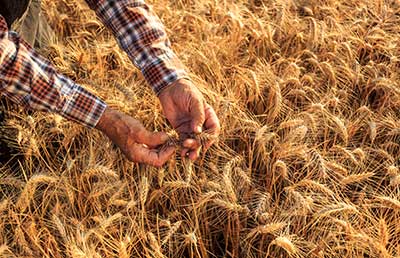Do Commodity Wages Count?

We have gotten several comments regarding whether commodity wages count as payroll costs for the Paycheck Protection Program loan.
In order to determine this we need to go to the law and determine what is considered to be compensation.
The law states any compensation that is a “salary, wage, commission, or similar compensation”. Commodity wages certainly meets that definition.
We then need to check to see what compensation is excluded from compensation for purposes of the PPP loan.
First, compensation in excess of $100,000. If commodity wages plus cash or other wages exceed $100,000 you will need to subtract or exclude those amounts.
Any compensation of an employee whose principal of residence is outside the US. That would exclude any compensation to H2A workers including commodity wages (which would be rare anyway).
Qualified Sick Leave or Family Leave under the Families First Coronavirus Response Act. These wages would never apply for 2019 and likely would not be paid in commodities. They were effective April 1, 2020.
There are no other forms of compensation listed that are excluded. The possible exclusion for payroll taxes under Chapter 21, 22 and 24 does not apply to commodity wages.
Therefore, the bottom line is that commodity wages qualify.
However, what may be more important is to verify payment of wages during the test period after you receive the loan. If you want part or all of your loan to be forgiven you must spend the loan proceeds on payroll costs (at least 75) and other costs.
If you attempt to show a commodity wage as being spent during this 8 week period, there could be an issue with the bank as to whether “cash” was spent on wages.
We need the SBA to clarify this issue for us. We will keep you posted.
Paul Neiffer is a certified public accountant and business advisor specializing in income taxation, accounting services, and succession planning for farmers and agribusiness processors. Paul is a principal with CliftonLarsonAllen in Walla Walla, Washington, as well as a regular speaker at national conferences and contributor at agweb.com. Raised on a farm in central Washington, he has been immersed in the ag industry his entire life, including the last 30 years professionally. Paul and his wife purchase an 180 acre ranch in 2016 and enjoy keeping it full of animals.

As a very small farmer in the US Virgin Islands I employ part time workers, some on a regular basis; others occasionally. I pay them an hourly wage and do not file 1099s for them. I report the cost of labor on schedule F on my income tax.
Would these wages be eligible in applying for the PPP? Any direction is appreciated.